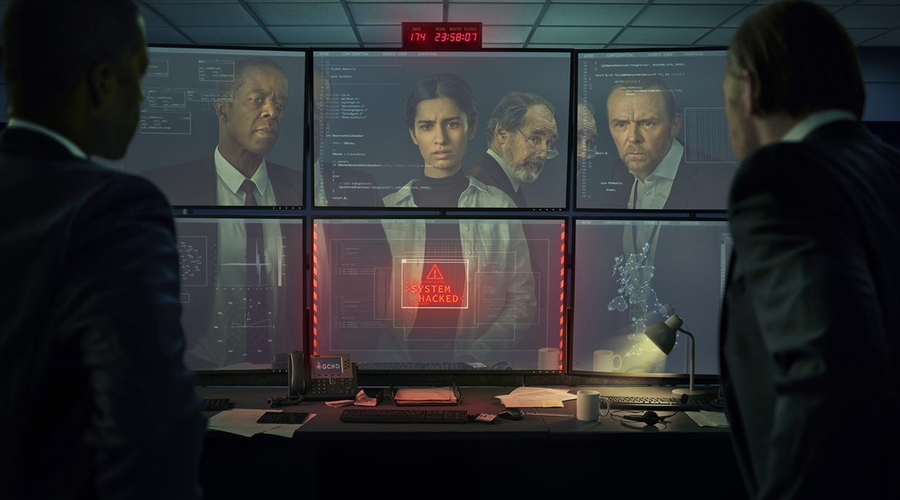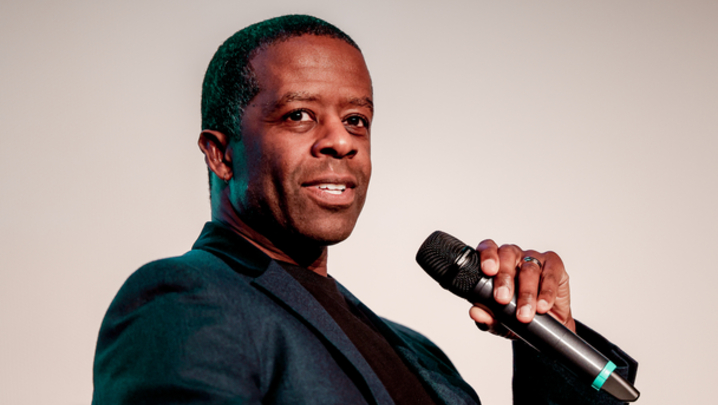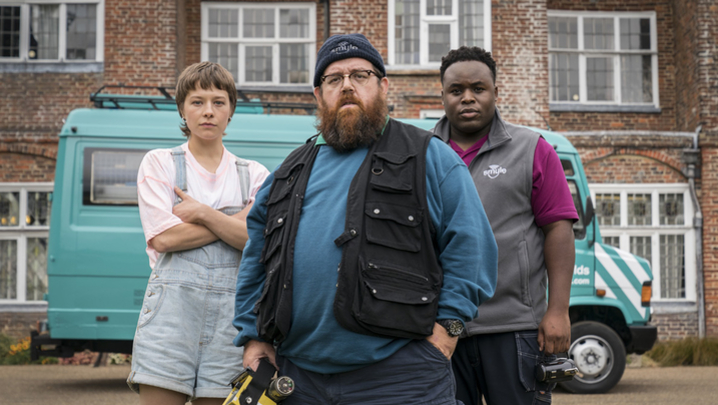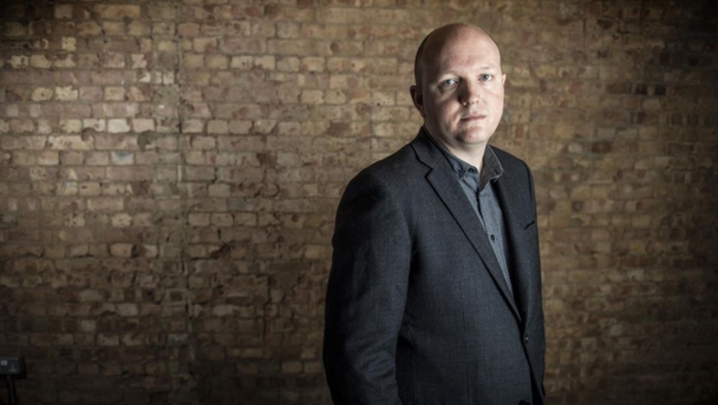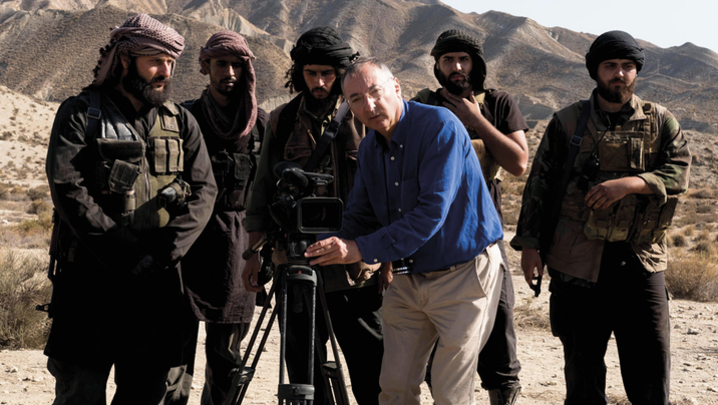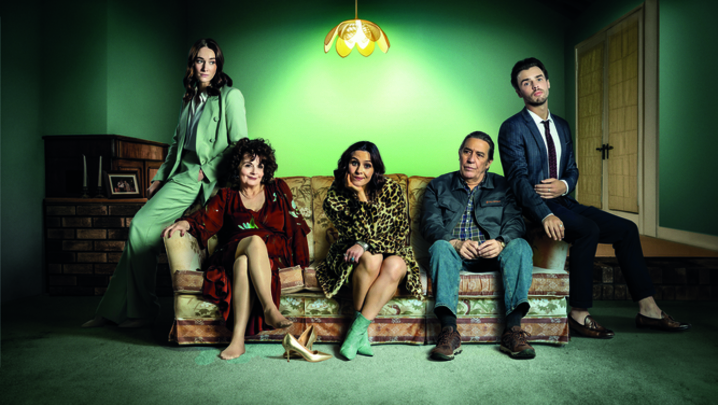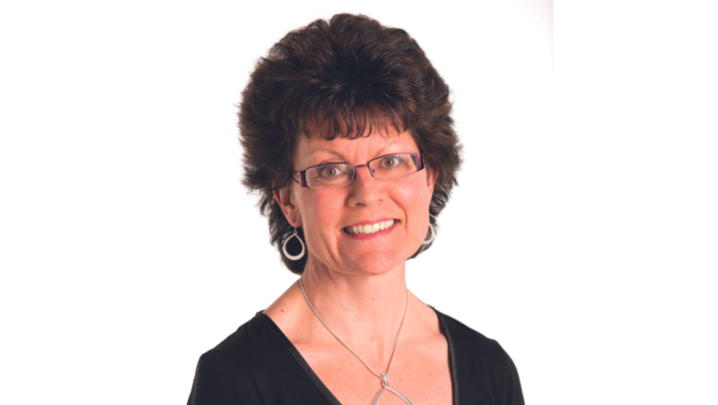The RTS hears why Peter Kosminsky’s cyber drama, The Undeclared War, is a warning to politicians to act before it’s too late.
‘Because it’s terrifying,” was Peter Kosminsky’s no-holds-barred answer when I ask him why he would take on the knotty problem – televisually as much as narratively – of bringing cyber conflict to the screen, before he expanded on the dire potential real-life consequences for us all.
“If another country – let’s call it Russia, but it’s certainly not the only one – attacks this country and we retaliate within the cyber domain, it will counter-attack again with a more serious cyberattack,” he explains. “It escalates one step after another step, with a sort of horrible inevitability.
“We are a very interconnected world and a little bit of malware launched against some part of our critical national infrastructure, such as our electricity, our water or our communications, can cripple the way of life we in Britain know and have come to take for granted. So it seems to me to be a really important and valid subject for a TV drama.”
Thus motivated and armed with the mountain of research notes for which he is known on previous projects (The Promise, Wolf Hall, The Government Inspector), Kosminsky went with co-creator Colin Callender to set out their stall for a near-future cyber thriller to Channel 4, where they found a very receptive ear in head of drama Caroline Hollick.
Speaking at an RTS event in mid August about the making of the show, she said: “I was a few weeks into the job, it was very new to me, and I received Peter’s extraordinary research document, which, I think, was 54 pages. I remember my heart sank slightly and I thought, “How am I going to get through this?” And then I was completely compelled – gripped – just by the revelatory detail that Peter had uncovered about what was happening.
“It does feel like we’re setting off a klaxon, telling [people]: ‘You need to be aware of what’s going on.’
“It does feel like we’re setting off a klaxon, telling [people]: ‘You need to be aware of what’s going on.’ And that makes it irresistible to Channel 4, where we’re always trying to be at the cutting edge, we’re always trying to be revelatory and to shine a light on who we are today.
“I feel that Channel 4 should go to a place that other people won’t or haven’t thought of doing. Peter has always brought us something new – a Peter Kosminsky show always feels like it’s got the DNA of Channel 4 built into it.”
Key to the success of the project was casting, with Kosminsky and Callender’s creative record making it an attractive prospect for Simon Pegg, Adrian Lester, Alex Jennings and the director’s regular stable partner, Mark Rylance.
Surrounded by all those familiar faces was a brand new one, Hannah Khalique-Brown. She plays 21-year-old GCHQ intern Saara Parvin, who suddenly finds herself on the front line of high-stakes cyberwarfare, her skills belying her naivety and bemusing her seniors.
She had only been acting professionally for a year before her audition tape landed on Kosminsky’s desk. He was immediately convinced and remembered: “I showed Hannah’s first audition to Colin, without telling him what I thought. There were about five names in the final list, and he said straight away, ‘What’s the debate? There’s only one!’”
Khalique-Brown agreed her experience of going on set alongside the veteran talents of Rylance, Pegg and co matched her character’s experience of entering GCHQ the first time: “There were many moments where I felt very much in parallel with Saara, which was a great extra kind of companionship to have with her.”
The actress proved her chops, however, when the never knowingly underprepared Kosminsky suggested she might familiarise herself with coding for the role, even delving into reverse engineering, a subject that is woven throughout the narrative.
She recalled: “Peter and I talked about practising typing every day so that I could get really proficient, because these people there, it’s second nature to them.
“I really love challenges so I went full steam ahead and decided to learn a couple of program mergers. I taught myself JavaScript and C++ via an online course, and I did some projects with them which is the only way to really cement your knowledge of coding.”
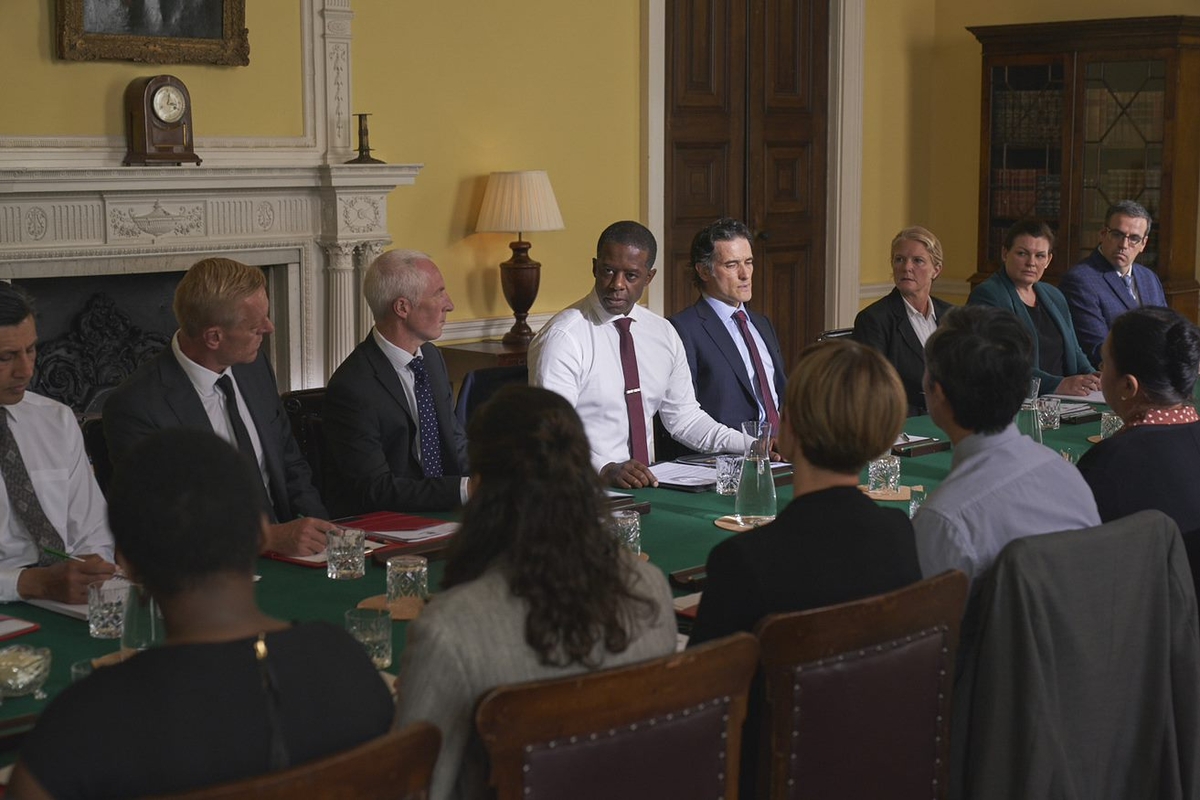
Besides his actors looking the part, another challenge of bringing coding to screen is working out how to keep the viewer involved. “It’s not my natural milieu,” Kosminsky conceded. “I was thinking, how do I make this interesting and entertaining for the audience?”
His answer was to come up with a series of visual rooms, archives and libraries to serve as a metaphor for Parvin’s mental calculations. The idea went down a treat when he nervously offered it up for Hollick’s inspection.
“It was just so innovative, I just felt like I hadn’t seen it before,” she remembers. “Yet the language that Peter uses to create code world makes total sense, and it solved one of the big challenges of The Undeclared War, which is that it is quite an interior piece. It not only gave you these visual moments, but for someone like me, who had absolutely no experience of coding whatsoever, it took me by the hand through that process.”
Another challenge was setting the narrative in the near future of 2024, a decision down to Kosminsky’s political curiosity. He explained: “The Russians fiddled with an American election, and I wondered, what if they tried to fiddle in an even more profound way in ours? Not so much to alter the outcome but to just increase that lack of trust in our own institutions and contempt for authority, which is their stock in trade. So that meant, you know, a quick trip to Google to find out when the election would be… it is likely to be in May 2024, so that was the first thing.”
Callender added: “It allows familiarity with a little bit of dramatic licence. We wanted to root it and ground it in the world that we live in today, but with the licence to explore the various things that could happen.”
For a story first outlined before the Brexit referendum, Kosminsky’s narrative is remarkably prescient – referencing Boris Johnson’s departure 15 months previously and the possibility of his being replaced by a privileged person of colour. How did Kosminsky know all this?
He laughs: “Well you know, you can hope! Did I think Boris would stay the course? I always thought he would burn out, I knew he was a… I don’t want to bring a libel down on your head but I don’t think there’s any debate about whether he’s been economical with the truth from time to time in his career. I just didn’t think he would manage to survive, it was just a gut instinct.”
Kosminsky would not be drawn on which people at GCHQ and other centres of power helped him construct such a realistic narrative, only revealing: “You would be surprised at some of the people who are prepared to talk for drama – it’s drama’s hidden secret weapon, really.”
After such a positive reception for the first six episodes, Hollick made no secret of her desire for the series to return: “The ambition for Undeclared War has always been that it would be a returning series. It’s an incredible premise, I think… it’s opened the door to telling really revelatory stories on a kind of epic global scale; watch this space is all I can say. Nothing’s returnable until it returns, but definitely the ambition is there.”
It’s a dense, complex topic to be sure, but Kosminsky was clear on the one thing he’d like viewers to take away: “I think we’re sleepwalking into something catastrophic. In among all the other threats we face as a society, not least the desperate effects of climate change, this is one of the most serious, so I’ve used the power of the drama medium, with my colleagues, to draw attention to this threat that we face, in the hope that some kind of avoiding action will be taken.”
Report by Caroline Frost, who hosted the RTS session on The Undeclared War on 16 August. The producer was Monique Levine from DDA. Viewers in the UK can watch all episodes of The Undeclared War on All 4.

